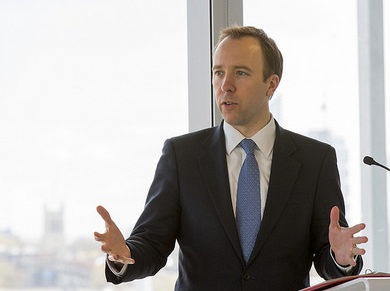The NHS is to offer patients in England a ‘gene testing’ service that will predict their chances of developing a range of illnesses.
They will be charged for the gene sequencing service and be expected to share their data anonymously with scientists afterwards.
The gene health report will forecast their chances of developing conditions such as Alzheimer’s and cancer.
Health Secretary Matt Hancock says the service will help in the search for new treatments for serious illnesses that ‘will benefit everyone in the future.’
He added: “While healthy people should not have this service free on the NHS, there are huge benefits to sequencing as many genomes as we can.
“Every genome sequenced moves us a step closer to unlocking life-saving treatments.”
The Department of Health said the project will be led by an NHS company, Genomic England, and that it is still in the early stages of development.
It did not say when the new service would commence or what the charges would be.
The project follows on from the 100,000 Genomes Project that launched in 2012 and was completed at the end of last year.
It involved 85,000 people having their genetic code – or genome – sequenced, along with the DNA of tumours in cancer patients, taking the number of genomes to 100,000.
One quarter of those taking part who had rare diseases received a first diagnosis during the project.
But concerns about the new initiative have been expressed, with its potential accuracy and the fact that patients will have to pay being called into question.
Dr Anneke Lucassen, chair of the British Society for Genetic Medicine, said: “The NHS has always been free at the point of delivery. It has the potential to create a two-tier system.”
She added: “You can use genetic code to confirm a clinical picture, but you can’t use it to predict what will happen in the future very accurately.”
Apart from that, the government’s plans for genetic medicine were otherwise ‘good and sensible’, she said.
The government says it plans to sequence at least one million whole genomes within five years.
In addition to paid-for DNA sequencing, the NHS routinely offers seriously ill children and adults with genetic conditions and cancer DNA analysis.




